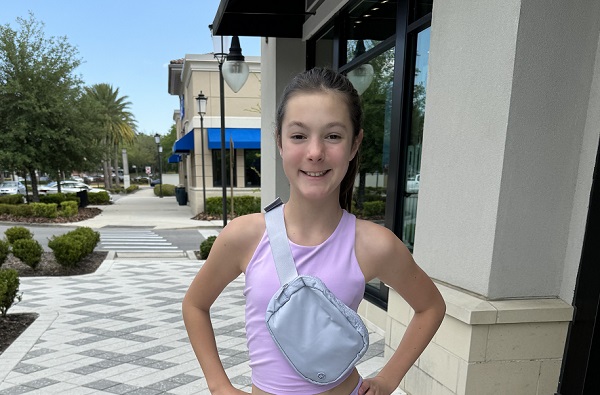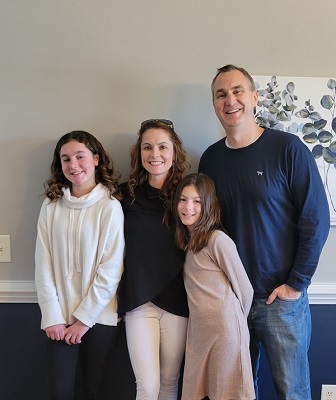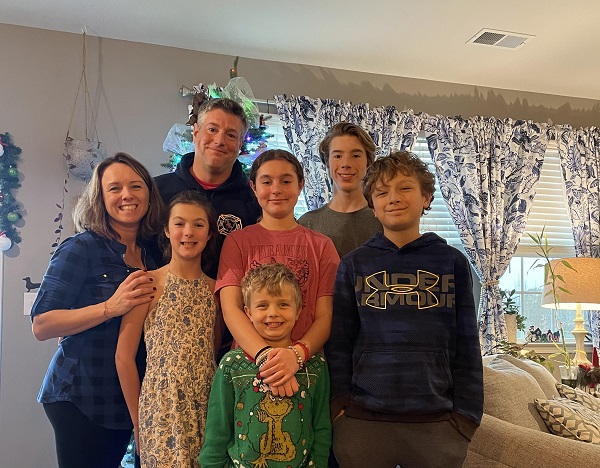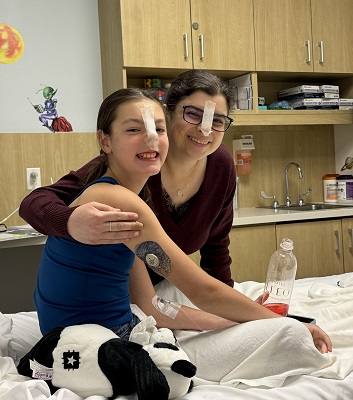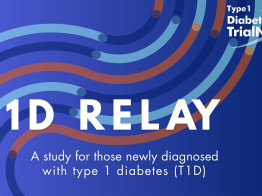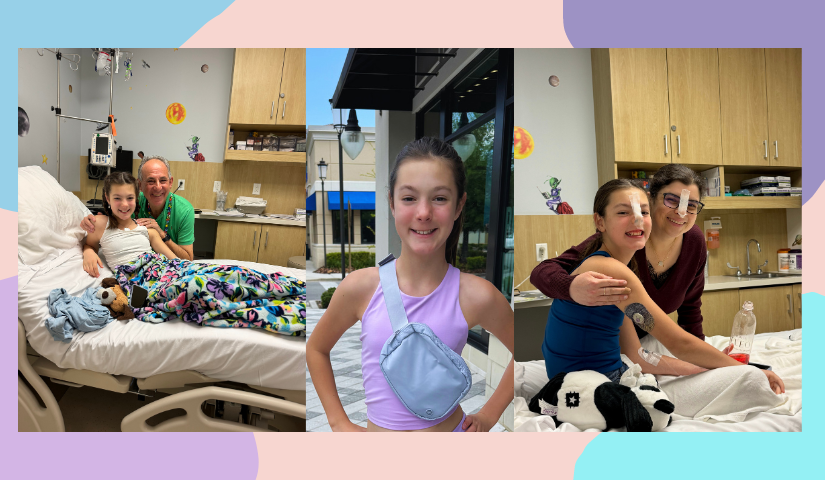
Brynlee Clevenger takes on T1D with a huge heart for helping others
For 10-year-old Brynlee Clevenger, it was the possibility of helping other kids with type 1 diabetes (T1D) that prompted her to join a clinical trial.
Ten-year-old Brynlee Clevenger of Waxhaw, NC, joined the T1D RELAY study in March. To kids thinking about joining a clinical study, Brynlee says, “You got this!”
After experiencing the worst of what seemed to have been a stomach virus late last year, Brynlee continued to be exhausted and suffer from severe stomachaches. Visits to her local urgent care center and pediatrician found nothing wrong. But when Brynlee’s symptoms continued to worsen, her mother, Lisa, decided to take her to a hospital near their home in Waxhaw, N.C. It didn’t take long to discover the cause of Brynlee’s discomfort.
Since Brynlee’s T1D diagnosis was the first in her family, her mother and sister, pictured here with her stepdad, Ben, have been screened by TrialNet. Both tested negative for the autoantibodies that signal increased T1D risk.
“After her blood draw, and while she was drinking Gatorade to prep for a CT scan, the Physician Assistant came in and said her glucose was 619 mg/dL and her A1C (average blood sugar over the last three months) was 9.1%,” Lisa recalls. A normal A1C is usually below 5.7%.
Brynlee spent the next two nights in the hospital, where the medical staff worked to get her blood sugar under control and gave her and Lisa a crash course in diabetes management. “Even with my healthcare background, there was a lot of new information to absorb,” Lisa said. “It was like drinking from a firehose.”
A few weeks after Lisa returned to work, one of her colleagues noticed she wasn’t herself and asked what was going on. When Lisa told him about Brynlee’s diagnosis, he asked if she had considered a clinical trial. He introduced Lisa to his former colleague, Michael Haller, MD, who heads up the TrialNet team at University of Florida (UF).
Dr. Haller told Lisa about T1D RELAY, a clinical study testing two immune therapies—one used after the other—to see if the combination can preserve insulin production in people newly diagnosed with T1D. Earlier research showed each therapy individually helped to delay insulin loss when started within 100 days of diagnosis.
After talking to Dr. Haller and Dr. Schatz, medical director of the UF Diabetes Institute, and discussing the decision with Brynlee’s father, Lisa knew she wanted Brynlee to participate in the study. But she wanted Brynlee to make the final decision.
Brynlee with her dad, Taylor, stepmom, Lauren, sister, brother, and stepbrothers.
“I presented her with the 10-year-old version of the study and took her to Gainesville to meet with the UF team,” said Lisa. “Brynlee loved meeting everyone, and it was such a great atmosphere. Ultimately, she said she wanted to join the study to help kids like her.”
Brynlee started the T1D RELAY Study in March. Like all the study’s participants, she received four weekly infusions of the first treatment: rituximab-pvvr. After a 12-week break between treatments, Brynlee will soon start the second study treatment: weekly injections of abatacept or placebo (looks like the study drug but has no active ingredients) for 20 months. Two-thirds of participants will get abatacept; one-third will get placebo. Neither the participants nor the research team will know who got abatacept until the study is over.
Of Brynlee’s experience at UF, Lisa says, “I can’t say enough about the UF research team and our coordinator Jen Hosford. They’ve been amazing.”
Brynlee says she loves going to the University of Florida and all the people she sees there, especially coordinator Jen Hosford (pictured here), and nurses Lisa Bacorn and Robyn Brunson.
Lisa’s advice for other families considering a clinical study: “It’s an individual decision. Consider what support systems you have in place, how far you’ll need to travel, and if you’ll need to take your child out of school. For us, it’s absolutely been worth it, and we’re just very excited to do what we can to improve her long-term outcomes and help advance the research.”
Want to learn more about T1D RELAY or other TrialNet studies? Visit trialnet.org/our-research.
